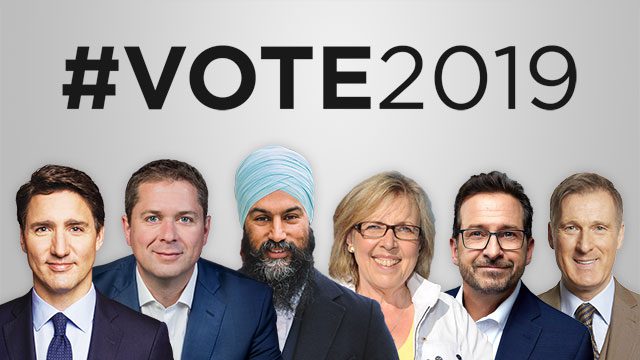
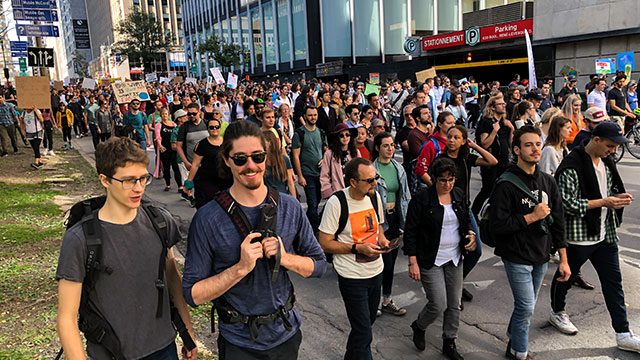
A new Environics Research poll shows Indigenous peoples have serious bread-and-butter concerns leading up to the federal election on Oct. 21.
They worry about the quality of their drinking water and whether they will have jobs, according to the survey conducted for Aboriginal Peoples Television Network (APTN) between Sept. 4 and 12.
“More than six in 10 agree their household is struggling economically; this is especially pronounced among Inuit,” says the poll.
This is the first Indigenous-specific snapshot of voters in the 2019 campaign, said Sarah Roberton of Environics, which surveyed 1,024 people self-identifying as First Nations, Inuit or Métis.
The pollster employed a “mix-mode” of questioning using online and telephone methods. But, because an online survey is not a random probability sample, a margin of error cannot be reported.
Most First Nations people live off-reserve, according to 2016 census results. Inuit are mainly in Nunavut and Ottawa, while the Métis are scattered throughout urban and rural Canada.
“Indigenous peoples are more pessimistic than optimistic about the economy – a view that is more pronounced in rural areas,” says the poll.
Within their own families, there is a lack of consumer confidence (70 per cent say it is a bad time to buy things) and their household is struggling to make ends meet (63 per cent).
(Iqaluit, Nunavut where Inuit says the high cost of living and air fare are issues that must be addressed. Photo: Charlotte Morritt-Jacobs/APTN)
Among Inuit, who are hamstrung by sky-high rent, air fare and food prices, the biggest concern is cost of living.
Those surveyed said the environment and climate change were their top national concerns, followed by government leadership and the economy.
The majority (72 per cent) said they intend to vote in the election. But that’s fewer than observed in general public surveys (80-90 per cent).
Liberal collapse
Notable is the collapse in support for the Liberal party.
“One in five are planning to vote Liberal, down from half who reported voting for the Liberals federally in 2015,” says the poll.
“A higher proportion (26 per cent) now plan to vote Conservative; the NDP (17 per cent) and the Green Party (16 per cent) are tied for third, while four per cent will vote for another party and one in six (16 per cent) are undecided.”
Environics says, considering those who say they could still change their minds, more than half (58 per cent) of Indigenous votes are up for grabs.
(Prime Minister Justin Trudeau addresses the national media in Ottawa to discuss SNC Lavalin. Photo: Mark Blackburn/APTN)
Those surveyed placed their change of heart squarely on the shoulders of Liberal Leader Justin Trudeau.
“Indigenous peoples are twice as likely to disapprove as approve of him. Conservative leader Andrew Scheer is also unpopular.”
Green Party Leader Elizabeth May and NDP Leader Jagmeet Singh were viewed more favourably, but Scheer was considered the best choice for prime minister (29 per cent), slightly ahead of Trudeau (26 per cent).
“The choice of Scheer, May or Singh as best PM tends to be motivated by a dislike of the other options, while Trudeau supporters are more apt to say they really like him.”
The survey found the Liberals attract most of their Indigenous support from voters who live on-reserve, while the NDP performed better among First Nations (regardless of location) and women, and less well in rural areas.
(Children play in Shoal Lake #40, a community on the Manitoba-Ontario border. Photo: Martha Troian/APTN)
Intention to vote Conservative is higher among men and older Indigenous peoples (echoing voting patterns in the general public), but also among Métis and rural residents, the latter of whom are among the most likely to express concerns about the direction of the country and the Canadian economy.
For more on the federal election click here: #vote2019
APTN commissioned the survey to gather opinions and identify issues most important to Indigenous voters.
Environics surveyed 822 Indigenous peoples in the provinces and 202 in the northern territories. The margin of error for the smaller group, it said, is 6.9 percentage points, at the 95 per cent confidence level. (At the analysis stage, provincial and territorial data were combined and weights applied by region, identity, location – urban/rural/reserve – gender and age, to correct for any shortfalls as well as to weight the territories back to their correct population proportion within the national sample of three per cent.)
Read the entire poll here: Environics APTN National News Federal Election Poll
The poll found opinion divided on whether the country is headed in the right or wrong direction.
There was no consensus on the country’s economic outlook, but there was more pessimism (43 per cent say the economy is getting weaker) than optimism (16 per cent say stronger).



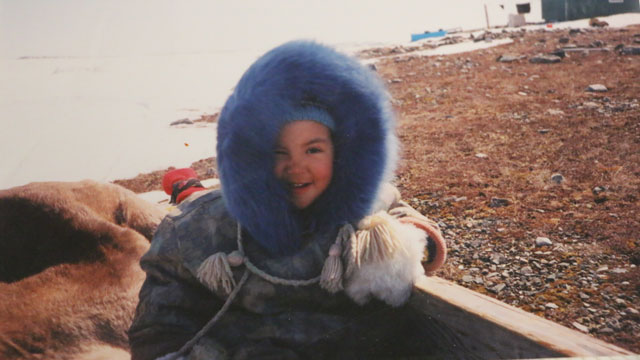
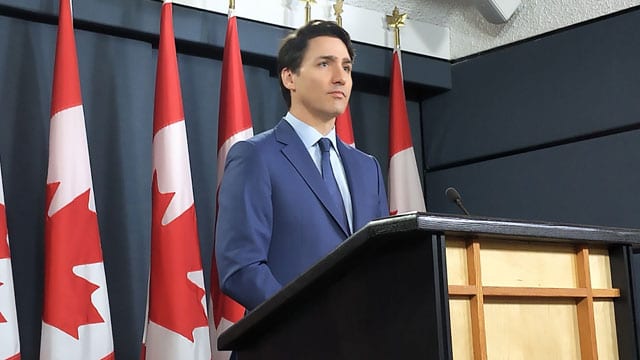
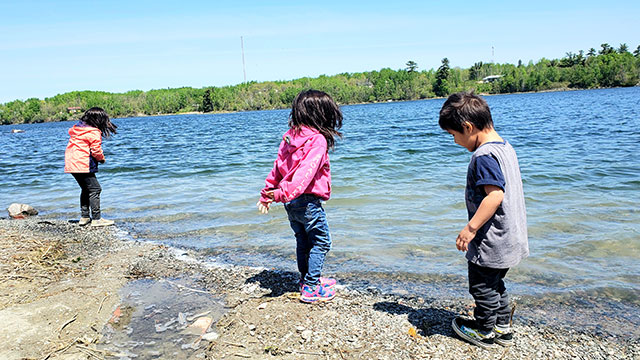








I say yes!. What do you say?
Is it time for a New PM and Government in Canada?